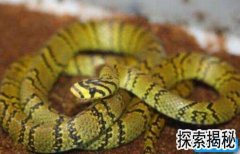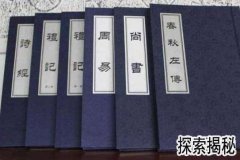the story-Emilia 的歌词及翻译
Oh,thinkin'about all our younger years,
噢,想着我们以前的时光
There was only you and me.
那时只有我和你
We were young and wild and free,
我们年轻,野性,自由
Now nothin'can't take you away from me.
现在没有什么能让我离开我
We've been down that road before,
就像我们以前那样
But that's over now,
但那些现在都已结束
You keep me comin'back for more.
我不断回忆和你我
Baby,you're all that I want,
宝贝,你就是我要想要的
When you're lying here in my arms,
当你在我怀里的时候
I'm findin'it's hard to believe,
有点难以置信
We're in heaven and love is all that I need.
我们就像在天堂,我又我要的爱
And I found it there in your heart,
那爱就在你心里
It isn't hard to see,
不难发现
We're in heaven.
我们就在天堂
Oh,once in your life you found someone
当你找到生命中的某人
Who will turn your world around,
谁会改变你的小宇宙
Bring you up when you're feeling down.
当你失落的时候,逗你开心
Yeah,nothin'could change what you mean to be.
没什么能改变你的意图
Oh,there's lots that I could say,
哦,一言难尽
But just hold me now,
只要你抱住我
'Cause our love will light the way.
因为我们的爱会指引我们
Baby,you're all that I want,
When you're lying here in my arms,
I'm findin'it's hard to believe,
We're in heaven and love is all that I need.
And I found it there in your heart,
It isn't hard to see,
We're in heaven.
I've been waiting for so long for something to arrive,
我一直在等待什么来到
For love to come along.
等待爱
Now our dreams are comin'true.
现在我们梦想成真
Through the good times and the bad,
经历快乐,痛苦
Yeah,I'll be standin'there by you.
是,我永远支持着你
Baby,you're all that I want,
When you're lying here in my arms,
I'm findin'it's hard to believe,
We're in heaven and love is all that I need.
And I found it there in your heart,
It isn't hard to see,
We're in heaven.
Emilia的the story的歌词大意
The story I'm about to tell you shows
That love is some predictable a moment to have but you then lose it all of again
This woman fall in love nearly years with the man spoken racily(directly) to her soul
That she was to only take about back all of that he had/has
Could’t tell them how she felt
It was a little fall(a lift for her) to a real life
His heart was never open
But hers was always being
She keeps it all to a sad secret need
No a hurt was keep (meeting)
He will never ever see
How this story could turn on to read
She was always sad when she/he was happy ,always sad when she/he was sad
Would (what) never one ,never one for him that she/he could turn down
With every touch that came(fat)?? like he can solve that it really went when he......
Because she wouldn't want it so bad
Could ‘t tell them how she felt
It was a little fall(a lift for her) to a real life
His heart was never open
But hers was always being
She keeps it all to a sad cycle secret need
No a hurt was keep (meeting)
He will never ever see
How this story could turn on to read
The song goes up to move comes down
Wait by wait can passby
She crys not to think about him
Always when the rain falls down
She thinks about it different time
How is she miss it not to hold them and have it by themselves
His heart was never open
His heart was never open
But heart was always being
She keeps it all to a sad cycle
No a hurt was keep hiding
He will never ever see
How this story could turn on to read
That is后面加逗号再加一句话这个形式是什么意思,该怎么用?
it is/was ...that 是强调句,可以强调除了表语以外的其他句子成分,比如:I met Li Ming at the railway station yesterday.昨天我在火车站遇见了李明。强调主语:It was I that (who) met Li Ming at the railway station yesterday.昨天是我在火车站遇见了李明。强调宾语:It was Li Ming that I met at the railway station yesterday.我昨天在火车站遇见的是李明。强调地点状语:It was at the railway station that I met Li Ming yesterday.我昨天是在火车站遇见李明的。强调时间状语:It was yesterday that I met Li Ming at the railway station.我是昨天在火车站遇见李明的。强调原因状语:It is because he is ill that he can’t come.他不能来是因为他病了。强调宾语补足语:It was chairman that they elected him.他们选他为主席。但是不能说" It is beautiful she is."因为"beautiful"在句中作表语的。可以用she is beautiful 以及 感叹句来强调。how beatiful she is!扩展资料常见到的强调形式,共有以下七类:1、用do\does\did + V可表强调Some people do believe that nuclear power poses a threat to the world peace.⒉、adv或adj可表强调:Never \ only\ VeryThis is the very question that deserves careful analysis.⒊、双重否定可表强调Taking part-time jobs is never without drawbacks.⒋、what引导的主从可表强调What really matters is cooperation.⒌、倒装可表强调(凡是倒装都可以表示强调)Little do people take into account the seriousness of this problem.⒍、比较状语从句可表强调Nothing is more imperative than to learn from the past.7、强调句型可表强调It is \was +被强调部份+ that \ who +原句剩余部份It is stability that destroys people’s ambition and barricades people’s steps.参考资料来源:百度百科-强调句
初中英语选词填空(用正确形式填空)
French, same, words, Chinese, example, many, why, great, much, what, another, tell
Languages change with time and the world. So does English. New __1__ are borrowed from other languages. About nine hundred years ago there were __2__ changes in England. A great __3__ words were borrowed into English from __4__. About five hundred years ago there was __5__ change. This time it was a change in pronunciation(发音), but the spelling was not __6__ changed. English words are spelled quite the __7__ as they were in those days. The spelling shows how words were spoken at that time. It does not __8__ us much about the pronunciation of words today. For __9__, the letters “gh” in the word “night” show us nothing about how it is spoken now. That’s __10__ students learning English find English spelling so confusing(容易弄混淆的).
[答案简析] 通过阅读,我们知道这是一篇关于英语词汇和读音的演变。 1. words。意思是“一些新的词汇是借用于其他语言”。 2. great。“巨大的变化”为great change。 3. many。words为可数名词的复数形式,用many修饰。 4. French。从前文…were borrowed into English from…可知应填French(法语)。 5. another。大约500年前,英语又发生了变化。 6. much。英语发音虽然有了变化,但拼写没有太多的变化。 7. same。拼写还是和原来相同。 8. tell。前一句用shows,很显然,此处应用tell表示“告诉”。 9. example。这里是在举例子。For example意为“例如”。 10. why。由于英语在拼写方面没有太大的变化,而在读音上发生了变化。这就是学英语的学生拼写容易出错的原因。
定语从句,关系代词,是不是都紧跟在在先行词后面
定语从句和关系代词一般要紧跟在先行词后面,但是有时会被一些词语隔开。
一、定语从句的定义。
用作定语的从句叫做定语从句(attributive clause)。定语从句通常皆置于它所修饰的名词(或代词)之后,这种名词(或代词)叫做先行词(antecedent)。引导宾语从句的关联词为关系代词和关系副词。关系代词在定语从句中可用作主语、宾语、定语等;关系副词在定语从句中只用作状语。如:
The student who answered the question was John. 回答问题的那个学生是约翰。(who answered the question是关系代词who引导的定语从句,用以修饰who先行词student,who在从句中用作主语)
I know the reason why he was so angry. 我知道他这么生气的原由。(why he was so angry是关系副词引导的定语从句,用以修饰why的先行词reason,why在从句中用作原因状语)
定语从句一般紧跟其先行词之后。如:
The room which served for studio was bare and dusty. 这个用作工作室的房间空荡荡的,布满灰尘。(关系代词which引导的定语从句紧跟其先行词room之后)
有时亦可与先行词分离。如:
A new master will come tomorrow who will teach you German. 明天要来一位新教师教你们德语了。(关系代词who引导的定语从句与其先行词master分离)
二、关系代词的用法。
用作关联词的关系代词有who,whom,whose,that,which等。who,whom,whose指人,who是主格,在从句中用作主语(在非正式英语中亦可用作宾语);whom是宾格,在从句中用作宾语;whose是属格,在从句中用作定语(有时亦可指物)。如:
The man who was here yesterday is a painter. 昨天在这里的那个人是位画家。(主格关系代词who在从句中用作主语)
The man who I saw is called Smith. 我见到的那个人名叫史密斯。(在非正式英语中who 代替了whom,亦可省去不用)
I know the man whom you mean. 我认识你指的那个人。(宾语关系代词whom在从句中用作宾语)
A child whose parents are dead is called an orphan. 失去父母的孩子叫做孤儿。(属格关系代词whose在从句中用作定语,指人)
I’d like a room whose window looks out over the sea. 我想要一个窗户面临大海的房间。(属格关系代词whose在从句中用作定语,指room,可代之以of which,但后者较为正式)
that在从句中既可用作主语,亦可用作宾语(在非正式文体中可省去);既可指人,亦可指物,但在当代英语中多指物。如:
A letter that is written in pencil is difficult to read. 用铅笔写的信很难读。(关系代词that在从句中用作主语,指物)
The letter that I received from him yesterday is very important. 昨天他来的信很重要。(关系代词that在从句中用作宾语,指物)
Is he the man that sells eggs? 他是卖鸡蛋的那个人吗?(关系代词that在从句中用作主语,指人)
关系代词which在从句中可以用作主语和宾语,一般皆指物,在非正式文体中可以省去。
This is the book which has been retranslated into many languages. 这就是那本有多种译本的书。(关系代词which在从句中用作主语)
Where is the book which I bought this morning? 今天上午我买的那本书在哪儿?(关系代词which在从句中用作宾语,可省去)
which在从句中亦可用作定语和表语。如:
We told him to consult the doctor, which advice he took. 我们叫他去看医生,他听取了我们的劝告。(关系代词which在从句中用作定语)
The two policemen were completely trusted, which in fact, they were. 那两个警察完全受到信任,事实上真是如此。(关系代词which在从句中用作表语)
as,than,but亦可用作关系代词。如:
The two brothers were satisfied with this decision, as was agreed beforehand. 两兄弟对这个决定都满意,它事先已经他们同意了。(关系代词as在从句中用作主语,其先行词是this decision)
He was a foreigner, as I knew from his accent. 他是个外国人,我是从他的口音知道的。(关系代词as在从句中用作宾语,其先行词是前面的整个句子)
I never heard such stories as he tells. 我从未听过他讲的这类故事。(关系代词as与指示代词such连用,在从句中用作宾语,其先行词是such stories)
Her attitude to him was quite the same as it had always been. 她对他的态度同她惯常的态度完全一样。(关系代词as与指示代词same连用,在从句中用作表语,其先行词是same)
You spent more money than was intended to be spent. 你花的钱超过了预定的数额。(关系代词than在从句中用作主语,其先行词是money)
There are very few but admire his talents. 很少人不赞赏他的才干的。(关系代词but在从句中用作主语,其先行词是few,but=who don’t)
关系代词在定语从句中用作介词宾语时,介词既可置于从句之首,亦可置于从句之末。但以置于从句之首较为正式。如:
This is the book for which you asked. 这是你所要的书。(关系代词用作介词for宾语,之首,即which之前)
This is the book which you asked for. 这是你所要的书。(介词for置于从句之末,which在此可省去)
关系代词who和that用作介词宾语时,介词须置于句末。如:
The people you were talking to are Swedes. 你与之谈话的那些人是瑞典人。(关系代词主格who用作介词to宾语时,介词to须置于从句之末,who中口语中可省去)
Here is the car that I told you about. 这儿就是我和你谈过的那辆汽车。(关系代词that用作介词about宾语,介词about须置于从句之末)
有时从句还有其它成分,介词则置于从句之中。如:
This is the boy who he worked with in the office. 那就是与他一道办公的那个男孩。
先行词指人时,关系代词既可用who,亦可用that。但关系代词在从句之中用作主语时,多用主格who。如:
Persons who are quarrelsome are despised. 好争吵者遭轻视。(除外persons,还有people,those,等皆多用who)
All who heard the story were amazed. 听到这个故事的人都感到吃惊。(代词如he,they,any,all,one等之后多用who)
I will pardon him who is honest. 我愿意宽恕他,他是诚实的。(描述性定语从句用who)
I think it is you who should prove to me. 我认为是你应该向我提出证据。(在强调结构中多用who,who在此可省去)
Who is not for us is against us. 谁不赞成我们就是反对我们。(缩合连接代词who为可代之以that)
在下列一些情况中则多用that。如:
)He was the man that the bottle fell on. 他就是瓶子落在其身上的那个人。(此处常用that作宾语指人,亦可用whom)
He is a man that is never at a loss. 他是一个从未一筹莫展的人。(that常用于泛指人)
He was watching the children and parcels that filled the car. 我望着塞满车的孩子和包裹。(兼指人与物时须用that)
Who that you have ever seen can beat him in chess? 你曾见过谁能在棋艺上打败他?(避免与先行词who重复时应用that)
That’s the same man that asked for help the day before yesterday. 这个与前天求援的是同一个人。(先行词前有指示代词same时应用that)
He is not that man that he was. 他已不是过去的他了。(that常用作表语)
I knew her father for the simplest, hardest working man that ever drew the breath of life. 我早知她的父亲是一个世上最简朴最努力工作的人。(先行词前有形容词最高级、序数词或only等词时应用that)
先行词指物时,关系代词that与which往往可以互换。但在下列情况中多用that。如:
All that glitters is not gold. 闪光的东西不都是金子。(不定代词包括复合词something等多后接that)
It was the largest map that I ever saw. 那是我所看见过的最大的地图。(前有形容词最高级等的先行词之后多用that)
It was liberation that brought about a complete change in his life. 是解放给他的生活带来了彻底的改变。(强调结构用that)
There is a house that has bay windows. 有一栋房子有凸出的窗户。(that在此表固有的特点)
The distance that you are from home is immaterial. 你离家的距离是不足道的。(在限制性定语从句中关系代词用作表语应用that,在描述性定语从句中则应用which)
Which was the hotel that was recommended to you? 哪一个是推荐给你的旅馆?(这里用that显然是为了避免重复which)
在下列情况中则多用which。如:
Larry told her the story of the young airman which I narrated at the beginning of this book. 拉里把我在书本开关叙述过的那个关于一个青年飞行员的故事讲给她听。(离先行词较远时常用which)
A store should keep a stock of those goods which sell best. 商店应存在最畅销的货物。(“those+复形名词”之后多用which)
I have that which you gave me. 我有你给我的那个。(which比较正式,在非正式英语中也可用that)
Beijing, which was China’s capital for more than 800 years, is rich in cultural and historic relics. 北京曾是八百多年的中国首都,有很丰富的历史文物。(描述性定语从句一般皆用which)
This is the one of which I’m speaking. 这就是我所讲的那个。(介词之后须用which)
用作关联词的关系副词有when,where,why等。when在从句中用作时间状语,其先行词须是表时间的名词。如:
We will put off the picnic until next week, when the weather may be better. 我们打算把野餐推迟到下周,那时天气可能转好。(关系副词when的先行词是next week)
He came last night when I was out. 他昨晚来时我出去了。(关系副词when的先行词是last night)
since,before,after亦可用作表时间的关系副词。如:
Every hour since I came has been most enjoyable. 我来之后的每一个小时都是非常好玩的。(since用作关系副词)
On the day before we left home there came a snowstorm. 在我们离家的前一天,下了一场暴风雪。(before用作关系副词)
The year after she had finished college she spent abroad. 她大学毕业后的一年是在国外度过的。(after用作关系副词)
that有时亦可用作表时间的关系副词。如:
It happened on the day that I was born. 那件事是在我出生的那一天发生的。(that=when)
Little do I remember the day that I first met her. 我几乎不记得与她初次见面的日子。
where在从句中用作地点状语,其先行词须是表地点的名词。如:
They went to the Royal Theatre, where they saw Ibsen’s “The Doll’s House”. 他们去皇家剧院看了易卜生的《傀儡家庭》。
The place where Macbeth met the witches was a desolate heath. 麦克白遇见女巫的地方是一片荒原。
where的先行词亦可是有地点含义的抽象名词。如:
He has reached the point where a change is needed. 他已到了需要改弦易辙的地步。(where的先行词point是抽象名词)
why在从句中用作原因状语,其先行词只有reason。如:
That is no reason why you should leave. 那不是你必须离开的原因。(why先行词是reason)
He refused to disclose the reason why he did it. 他拒绝透露他做那件事的原因。(why先行词是reason)
有时why可以省去。如:
That’s one of the reasons I asked you to come. 那是我要你来的原因之一。(reasons后省去why)
有时why可用that代替。如:
The reason that he died was lack of medical care. 他死于缺乏医疗。(why由that代替)
当先行词为the way的时候,关系副词也可以用that,例如:
This is the way that he solved the problem. 这是他解决问题的方法。
I don't like the way that he talks. 我不喜欢他说话的样子。
定语从句可分为限制性定语从句与非限制性定语从句。限制性定语从句与先行词关系密切,对它有限制作用。因此不可缺少,否则会影响全句的意义。限制性定语从句前一般不用逗号。如:
What is the name of the boy who brought us the letter? 给我们带信的那个男孩叫什么名字?
There is much which will be unpleasing to the English reader. 有许多东西将会使英国读者不愉快。
The teacher told us that Tom was the only person that was reliable. 老师告诉我们,汤姆是惟一可依赖的人。
I shall never forget the day when we first met in the park. 我永远不会忘记我们在公园相见的那一天。
Is there a store around where we can get fruit? 附近有可以买到水果的商店吗?
Do you know the reason why I came late? 你知道我迟到的原故吗?
非限制性定语从句(non-restrictive)只与先行词有一种松散的修饰关系,用逗号与先行词分开。因此从句中的关系代词不能省略。that一般不引导非限制性定语从句。如:
I like to chat with John, who is a clever fellow. 我喜欢与约翰交谈,他是个聪明人。
Water, which is a clear liquid, has many uses. 水是一种清澈的液体,有许多用途。
Once more I am in Boston, where I have not been for ten years. 我又一次来到了波士顿,我有十年没有到这里来了。
非限制性定语从句形式上是从句,其功能实质上相当于一个分句。如:
Then he met Mary, who invited him to a party. 后来他遇到玛丽,玛丽邀请他去参加晚会。(who实际上=and she)
When he was seventeen he went to a technical school in Zurich, Switzerland, where he studied mathematics and physics. 他17岁时,到瑞士苏黎世一专科学校上学,他在那里学习数学和物理学。(where=and there)
有时非限制性定语从句的含义相当于一个状语从句。如:
We don’t like the room, which is cold. 我们不喜欢那个房间,它很冷。(which is cold=since it is cold)
He said he was busy, which was untrue. 他说他很忙,其实不然。(which was untrue=though it was untrue)
I want him, who knows some English. 我要他,他懂得些英语。(who knows some English=for he knows some English)
希望我能帮助你解疑释惑。
下面的题目是定语从句还是同位语从句?答案是什么?为什么?
这个问题我研究的相当透彻。B 定语从句,因为从句前面的词situation加上介词变成in the situation在后面从句里可以做地点状语,所以后面的从句是定语从句。同位语从句的引导词和前面的名词没有关系,并且本身或加上介词也不能在从句中做成分。这对于你以后的学习相当有用的。
Have you heard the news that he will come back next week?
Have you heard the news that he has told nearly everyone?
第一句的that和news没有关系并且在从句中不做成分,所以是同位语从句。
第二句的that指代的是news,在从句中做has told的直接宾语,所以是定语从句。
二者的共同点是都可以翻译成 ……的……
第一句:你听所那个(他下周要来的)消息了吗?
第二句:你听说那个(他几乎已经告诉所有人了的)消息了吗?
story怎么读
story的英式读音是:['stɔːri];美式读音是:['stɔːri]。释义:n. 故事;传说;谎言;叙述;新闻报道;情节n. 楼层(=storey)v. 以历史事件为图案装饰例句:The story stirred her sympathy.这故事激起了她的同情心。词汇语法:story直接源自古法语的estorie,意为故事;最初源自晚期拉丁语的storia,意为故事。近义词“anecdote”释义:n. 轶事;奇闻读音:英 ['ænɪkdəʊt];美 ['ænɪkdoʊt]例句:He departs from the text to tell an anecdote.他没讲课文而讲了一段轶事。词汇语法:anecdote的基本意思是指不见于正式记载、鲜为人知的传闻趣事,有时统指一切轶事。
story怎么读
story的读法为:美[ˈstɔri]/英[ˈstɔːri]。1、story的释义n.小说;谎言;(虚构的)故事;(真实情况的)叙述v.把…作为故事讲述;用故事画装饰;说假话;〈古〉讲…的故事[历史]2、story的短语title of a story故事的题目story writer故事作家horror story骇人的故事(或谎言、新闻)front page story头版新闻narrator of a story故事的讲述者story line故事情节character in a story故事中的角色story hour讲故事的时间story的例句:1、It was many years before the full story was made public. 许多年之后,事情的全貌才得以公之于众。2、The article concentrates on the human angle of the story. 这篇文章集中讨论了故事中人的情感问题。3、The official story has always been that they are just good friends. 官方一直说他们只不过是很好朋友。4、The story is built around a group of high school dropouts. 故事是围绕着一群辍学的中学生展开。
continued story前半部分英文是什么意思
I guess my cheater's my on my way
我想我骗子是我在我的方式|我想我的骗子是我在路上了
And the sun shining forever
太阳的光辉永远|阳光灿烂,直到永远
In this story is mine,in this story is mine
在我的这个故事中|在这个故事中,都是我的,在这个故事中,都是我的
Can you still keep the shine dispel
你还能保持光亮驱散
Do my way dispel
做我的方式消除吗
Do my heart dispel
做我的心驱散吗
Can the shine dispel on human way
可以使人类的方式消除对 (这个版本不是很完全~~0 - 0~~)
只有中文的翻译版~~
或许只要用一滴露水
就能守住这朵花
只要你换上笑脸
我就会接受你伸出的手
颤动的声音集聚起来的话
或许便足以唤起风
称为生命的虚幻之光
一旦点燃便能驱使双足向前进
啦啦啦啦啦啦啦
总有一天再次相见
啦啦啦啦啦啦啦
在有生之涯里
超越一直束缚著自身的时间
溢满的这道思念是什麼?
适合温柔目光的那个人
现在身在何处?
隔壁保留著崭新座位
是为了未来与你再次邂逅
尽可能地保持原状不加装饰
试著活在每个称为今天的日子
人们难过著怀抱著悲伤
无论走到哪里 路都会畅行无阻
很诚实的说这个答案在百度上面已经有人贴过了~
希望是这个没错哈~~0 - 0~~





